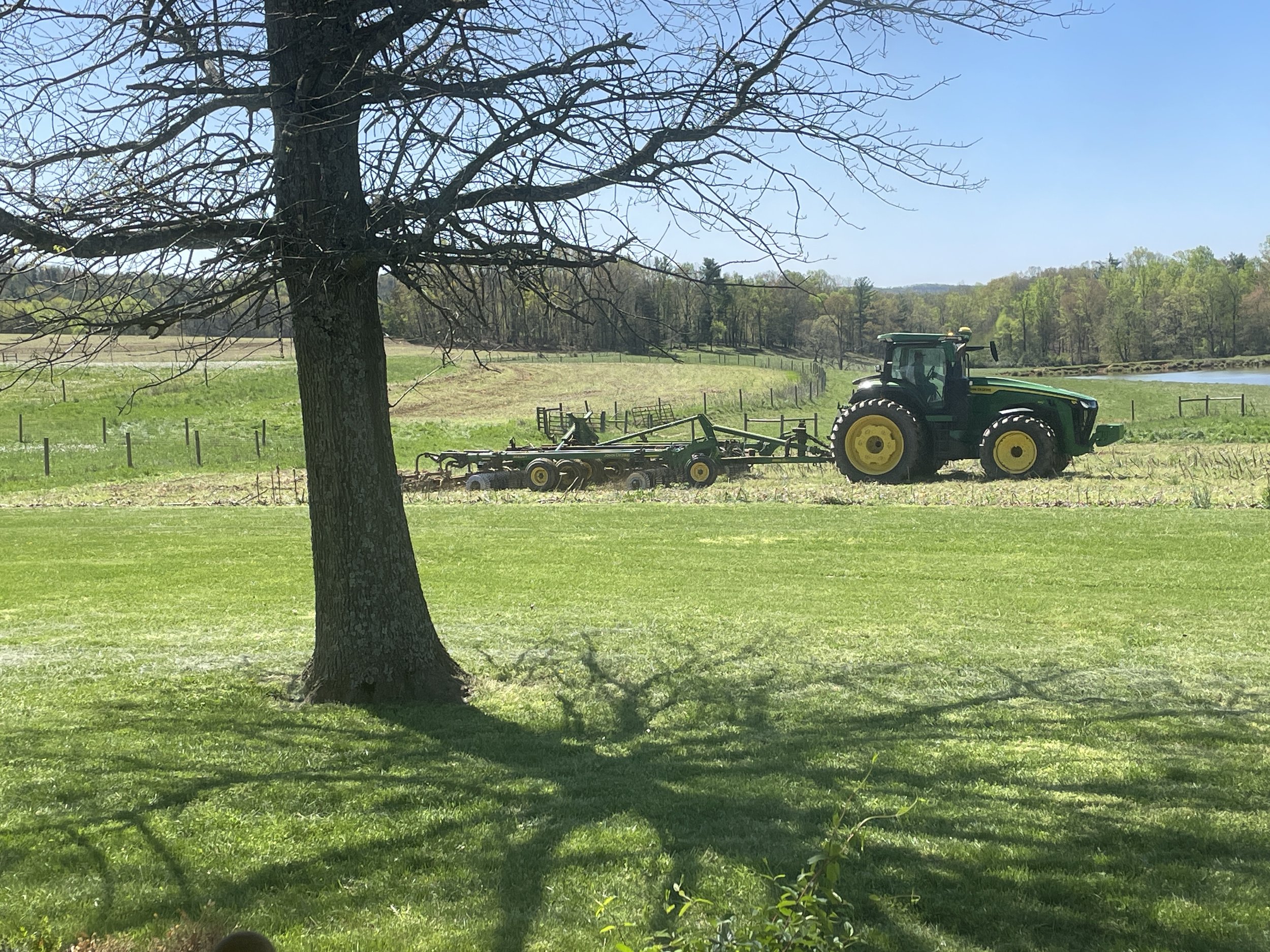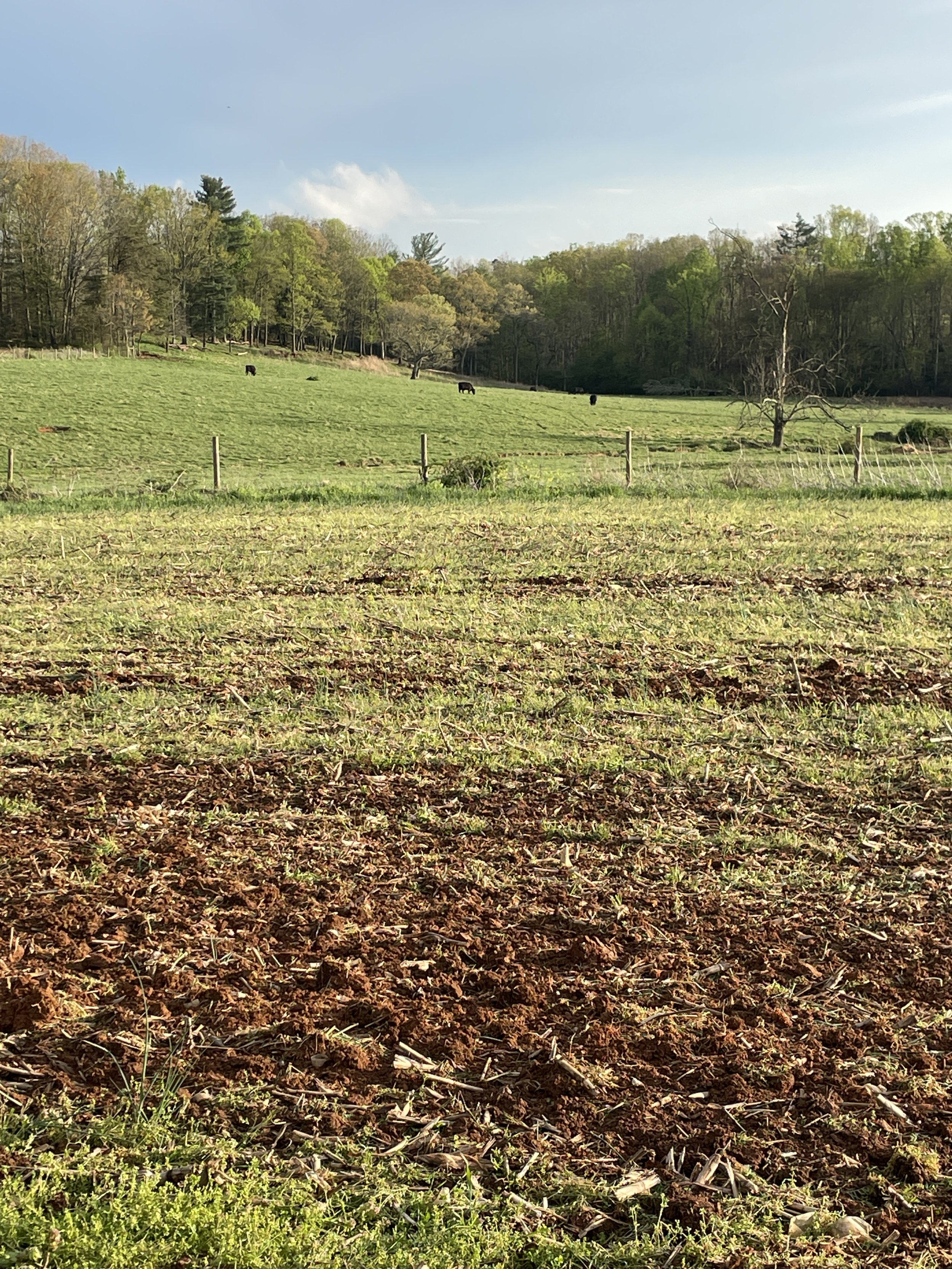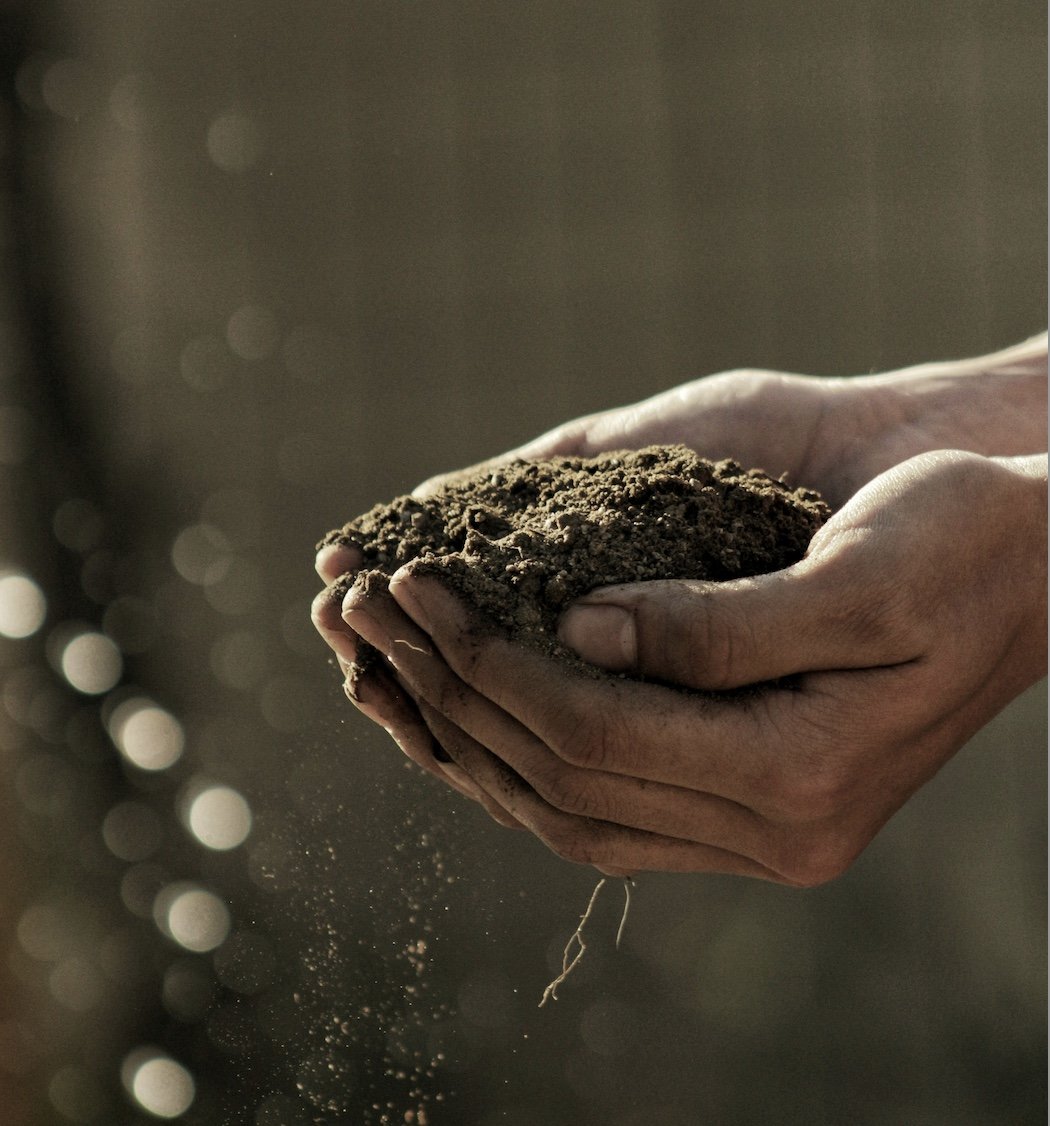Regenerative Soul Farming
Till my heart, Lord; turn over the soil of my soul’s fallow fields…
Are there any fallow fields in my soul? Or are they all in constant use, pressed into service without reprieve for far too long? Without time to lie fallow, what is the state of my soul’s soil?
Recently, in the midst of a full season of life and ministry, Jesus invited, “Come with me … to a quiet place. You need to get some rest” (Mark 6:31). An hour’s drive and a world away, I found myself in an old farmhouse surrounded by fields and green pastures dotted with cows grazing beside a quiet pond. I drank in the stillness, the birdsongs, the countless shades of green, the spaciousness of rolling hills and a big blue sky, and my soul began to exhale. I’d sit for long stretches, rocking on the porch, wrapped in a blanket and my hands wrapped around a mug of hot tea, and reveling in the paradox of utter solitude and Presence. And my soul began to expand. Shalom…
One morning, a low rumble disrupted the silence as a green tractor pulling a disc plow rolled into view. The prayer, “Till my heart, Lord…,” sprang unbidden as I observed the tractor’s progress across the dormant field, corn stubble and dandelions being turned under and rich loam surfacing. The questions that interrupted my prayer caught me up short and became the fodder for days of self-reflection and dialogue with Jesus. They also sent me on a journey of exploration into soil science and the practice of regenerative soil farming.
Photo credit: Rosalyn Otto
Jesus, as much as I like to think that I prefer being with you, am I so busy doing “for” You that no part of my soul is lying fallow? Not good. On so many levels…
Fields that never lie fallow over time become unusable. As one farmer described it, “By the time we stopped farming, our Centennial Farm could no longer grow anything, barely even weeds” (Wendy Basil, highcountrylavender.com). The soil becomes so depleted, even toxic, that it is unproductive. It cannot nourish life, let alone produce crops. It is tired, worn down, and of no use to the farmer or the people depending on its crops for nourishment. No amount of tilling is going to make that soil useful again. It doesn’t need tilling; it needs to lie fallow for a season.
Since I’m not a farm girl (yet?!?) I had to look up exactly what it means to “lie fallow.” The Cambridge Dictionary states: “Land that lies fallow is not planted with crops, often in order to improve the quality of the soil.” God baked this concept into the instructions He gave His people before they ever entered their Land of Promise:
“Plant and harvest your crops for six years, but let the land rest and lie fallow during the seventh year. … Work for six days, and rest on the seventh. This will give your ox and your donkey a chance to rest. It will also allow the people in your household … to be refreshed.” (Exodus 23:10,12)
Photo credit: Rosalyn Otto
This is radically counter-intuitive, counter-cultural, and reorienting! And, radically essential. Perhaps more than anything, this practice was intended to serve as an exercise in trust that God would be working even when they were not, and a vivid reminder that everything they were and did and had belonged to God; He is the One who provided all they needed. I can also imagine that when one or more of their six years of working the fields was unproductive (or even under-productive) due to drought, storms, pests, disease, or because the farmer was incapacitated or absent it was all the more an opportunity for the intentional choice to trust God’s care and provision when that seventh year rolled around. It would have felt risky, irresponsible, and I’m sure neighbors and well-meaning family would say that it would be utterly foolhardy not to plant. But the earth needs that time to rest, to receive the spring and autumn rains, to soak up the sunshine falling on fallow fields, and for nutrients gradually to be restored. … God’s gracious gift.
It would seem if God’s people had followed His instructions and faithfully allowed their fields to lie fallow every seventh year, that would have been enough to maintain health and productivity. But clearly they did not listen and obey, and the result was that most of the Promised Land became barren - so much so that lying fallow was not nearly enough to restore it! Thousands of years later, Israel, over the past decades has been on the cutting edge of regenerative farming. “Regenerative agriculture is a set of practices that prioritize the health of the soil, the environment, and all living beings” (sustainableharvest.org). It involves a wide range of methods to improve the soil, including planting beneficial crops for the sole purpose of reintroducing nutrients to the soil, interplanting trees and layers of crops to control erosion, using only natural fertilizers (such as compost and manure), and rotating crops. As one farmer explained, “Our mission is to turn dirt into soil!” (Wendy Basil).
It turns out that “soil” and “dirt” are not the same thing, regardless of how often they are referred to interchangeably!
Photo credit: Rosalyn Otto
Soil … is a dynamic, living ecosystem teeming with activity. It is a complex mixture of mineral particles, organic matter, water, air, and countless living organisms. … In contrast, dirt is best described as devoid of the complex biological processes and rich composition of soil. It is often considered the inert, lifeless material that results when soil has been degraded or damaged. Dirt typically lacks organic matter, beneficial microorganisms, and the pore space required for water and air circulation. It is … often compacted and unable to support healthy plant life.” - enviroliteracy.org
Oh, Jesus, the garden of my heart is Yours and the soil of my soul belongs to You. You are the Farmer, and You have entrusted me with the sacred responsibility and privilege of being their caretaker. And I am realizing how poorly I’ve stewarded this sacred trust…
Along with rest, my soul’s soil needs regenerative farming. (Yours, too?) What does that look like? What are the spiritual components that our Gardener gives us to cooperate with Him in caring for the soil of our souls? “May your roots go down deep into the soil of God’s marvelous love” (Eph 3:17 NLT). God’s love is the rich substrate, the hummus of the heart’s garden and the soul’s soil. It is nourished by His Word as we are nourished by His Word. Jesus emphasized, “[we] must feed on every word of God” (Matt 4:4). Jesus is the Word made flesh! So our nourishment must come both from Scripture and from enjoying God and soaking in His Presence.
Extending the metaphor, the soul’s soil and the heart’s garden are watered by God’s Spirit, referred to as rain (Hosea 6:3), the fountain of life (Psalm 36:9), and rivers of living water (John 7:37-39). We need the continual refreshing of the Spirit to keep the garden of our hearts and the soil of our souls soft and loamy so that our lives can be the well-watered gardens God described to Isaiah (58:11).
Rain, yes, and thunderstorms are also necessary. As a friend and mentor explained to me, the ionization of the air and especially lightning bolts are a vital part of soil health. None of us wish for storms in our lives, yet the spiritual application seems clear: in God’s good design for our lives, the storms are necessary for our growth, fruitfulness, and flourishing.
Photo credit: Greg Johnson (Unsplash)
And then there’s “fertilizer,” so necessary for soil health and richness. The most natural fertilizer is the droppings of grazing animals. I usually try to avoid manure - especially circumstances in my life that feel like the manure has, to use a colloquialism, “hit the fan.” And yet… perhaps God’s invitation to us is to welcome these circumstances and seasons because of the way He redemptively tills them into our heart’s garden and soul’s soil to deepen our relationship with and dependence on Him. To enrich our soul’s soil.
“We can rejoice, too, when we run into problems and trials, for we know that they are good for us - they help us learn to endure. And endurance develops strength of character in us, and character strengthens our confident expectation of salvation. And this expectation [hope] will not disappoint us. For we know how dearly God loves us, because he has given the Holy Spirit to fill our hearts with his love.” Romans 5:3-5
Photo credit: Gabriel Jimenez (Unsplash)
I am also reminded that soil is a whole ecosystem, with “countless living organisms,” some, like fungi, can contain whole networks of interconnection. So, too, God has designed us to live in community. We are made to need each other and to live “one-anothering” lives! Our Triune God intends our relationships to be reflections of their relationships within the Trinity. He uses community as one of the primary ways we are matured and allowed to experience the love of God “with skin on.”
And over all shines the sunlight of God’s grace. No matter how healthy the soil is or becomes, nothing will grow, let alone bear fruit, without light and warmth. The light of His Presence and the warmth of God’s face shining on us is pure grace. “The LORD bless you and keep you; the LORD make his face to shine upon you and be gracious to you; the LORD lift up his countenance upon you and give you peace” (Numbers 6:24-26).
These principles and components of “regenerative soul farming,” combined with the discipline/practice of fallow seasons, create and reinvigorate the gardens of our hearts and soil of our souls. What would it look like to translate them from good concepts and principles to beneficial practices and healthy rhythms that can form the trellis for our lives and an ongoing pattern of living in deep union and intimacy with Jesus and vibrant, luxuriant growth and fruitfulness?
Photo credit: Sam Farallon (Unsplash)
Thank you, Jesus, for Your love. Thank You for the light and warmth of Your face shining on me, on us. Thank you for Your grace over and in our lives. And, yes, thank you even for the “manure” and storms that come our way. Would you please continue to show us how to live lives of rest and “regenerative soul farming”?
Written by: Rosalyn Otto






